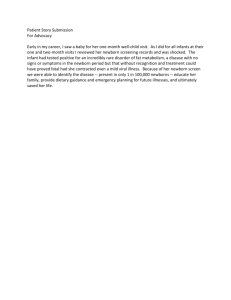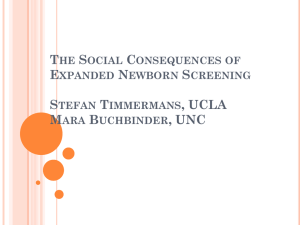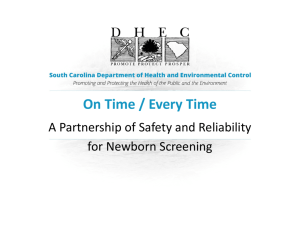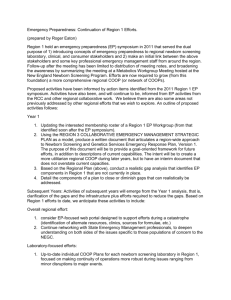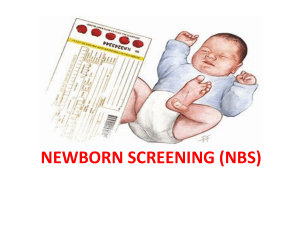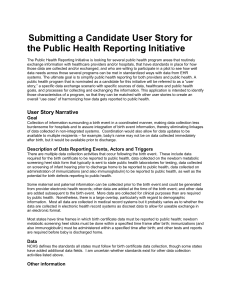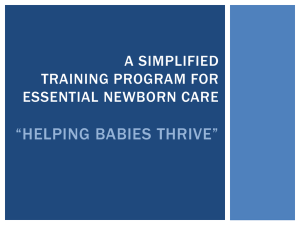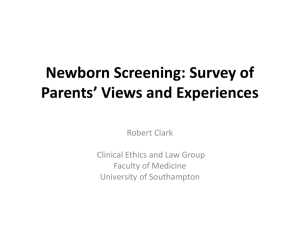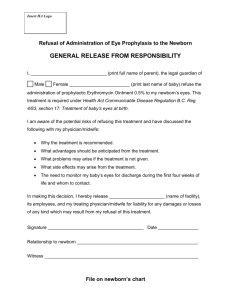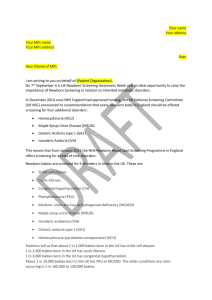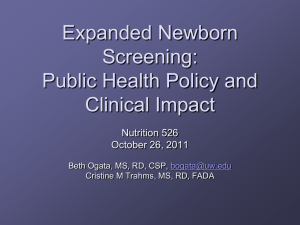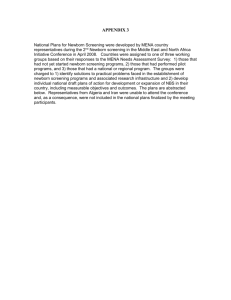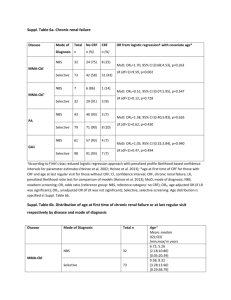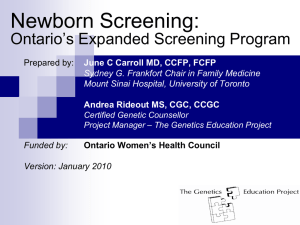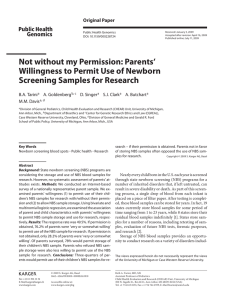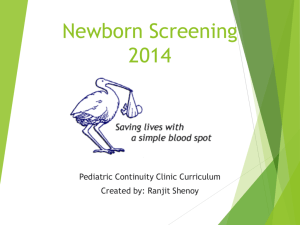Newborn Screening - The Philippine Reporter
advertisement
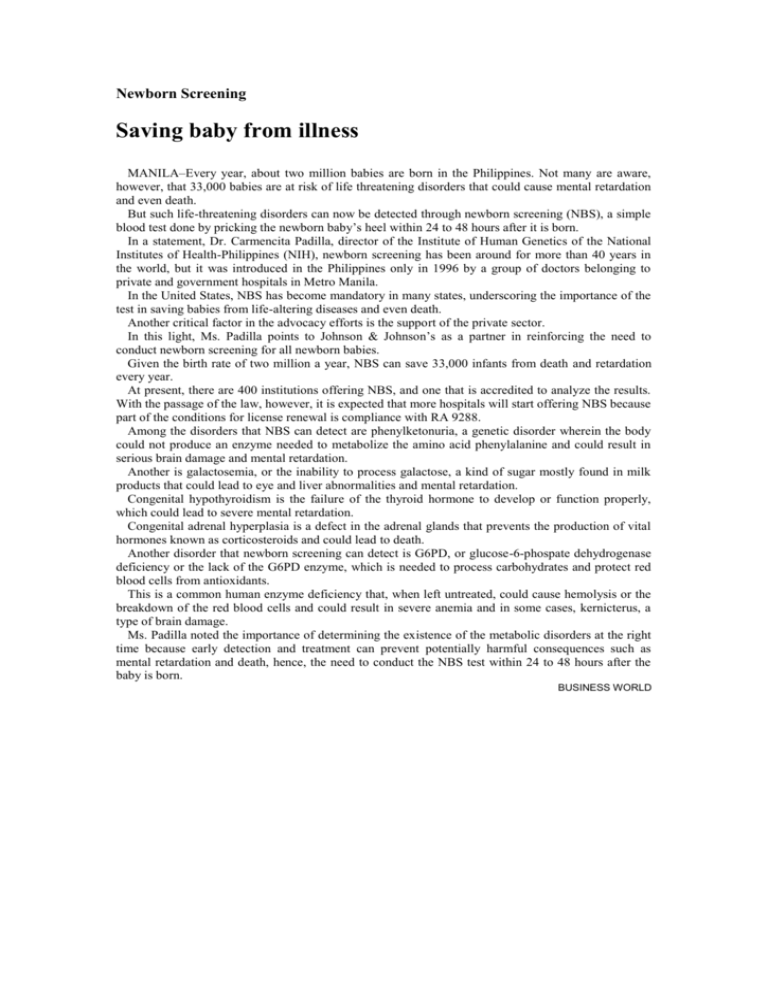
Newborn Screening Saving baby from illness MANILA–Every year, about two million babies are born in the Philippines. Not many are aware, however, that 33,000 babies are at risk of life threatening disorders that could cause mental retardation and even death. But such life-threatening disorders can now be detected through newborn screening (NBS), a simple blood test done by pricking the newborn baby’s heel within 24 to 48 hours after it is born. In a statement, Dr. Carmencita Padilla, director of the Institute of Human Genetics of the National Institutes of Health-Philippines (NIH), newborn screening has been around for more than 40 years in the world, but it was introduced in the Philippines only in 1996 by a group of doctors belonging to private and government hospitals in Metro Manila. In the United States, NBS has become mandatory in many states, underscoring the importance of the test in saving babies from life-altering diseases and even death. Another critical factor in the advocacy efforts is the support of the private sector. In this light, Ms. Padilla points to Johnson & Johnson’s as a partner in reinforcing the need to conduct newborn screening for all newborn babies. Given the birth rate of two million a year, NBS can save 33,000 infants from death and retardation every year. At present, there are 400 institutions offering NBS, and one that is accredited to analyze the results. With the passage of the law, however, it is expected that more hospitals will start offering NBS because part of the conditions for license renewal is compliance with RA 9288. Among the disorders that NBS can detect are phenylketonuria, a genetic disorder wherein the body could not produce an enzyme needed to metabolize the amino acid phenylalanine and could result in serious brain damage and mental retardation. Another is galactosemia, or the inability to process galactose, a kind of sugar mostly found in milk products that could lead to eye and liver abnormalities and mental retardation. Congenital hypothyroidism is the failure of the thyroid hormone to develop or function properly, which could lead to severe mental retardation. Congenital adrenal hyperplasia is a defect in the adrenal glands that prevents the production of vital hormones known as corticosteroids and could lead to death. Another disorder that newborn screening can detect is G6PD, or glucose-6-phospate dehydrogenase deficiency or the lack of the G6PD enzyme, which is needed to process carbohydrates and protect red blood cells from antioxidants. This is a common human enzyme deficiency that, when left untreated, could cause hemolysis or the breakdown of the red blood cells and could result in severe anemia and in some cases, kernicterus, a type of brain damage. Ms. Padilla noted the importance of determining the existence of the metabolic disorders at the right time because early detection and treatment can prevent potentially harmful consequences such as mental retardation and death, hence, the need to conduct the NBS test within 24 to 48 hours after the baby is born. BUSINESS WORLD

